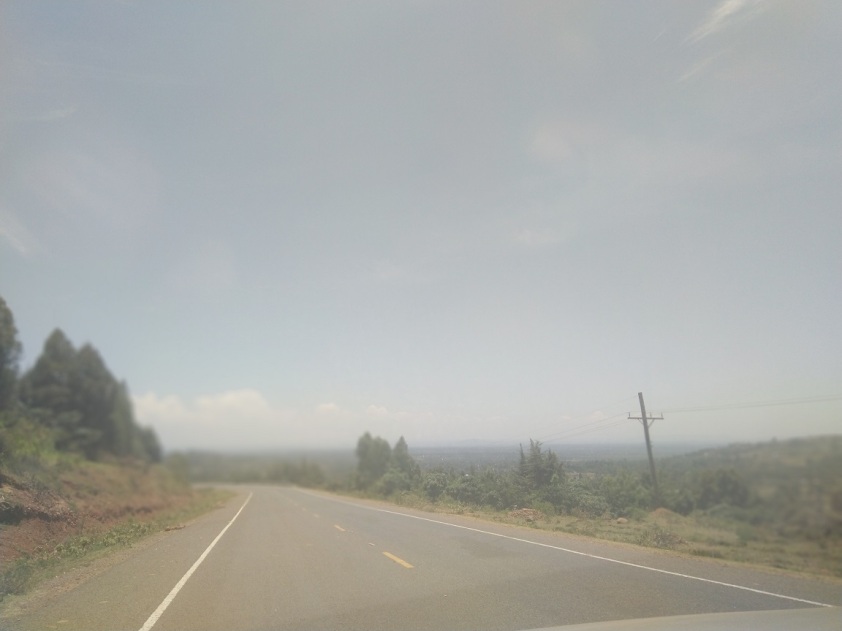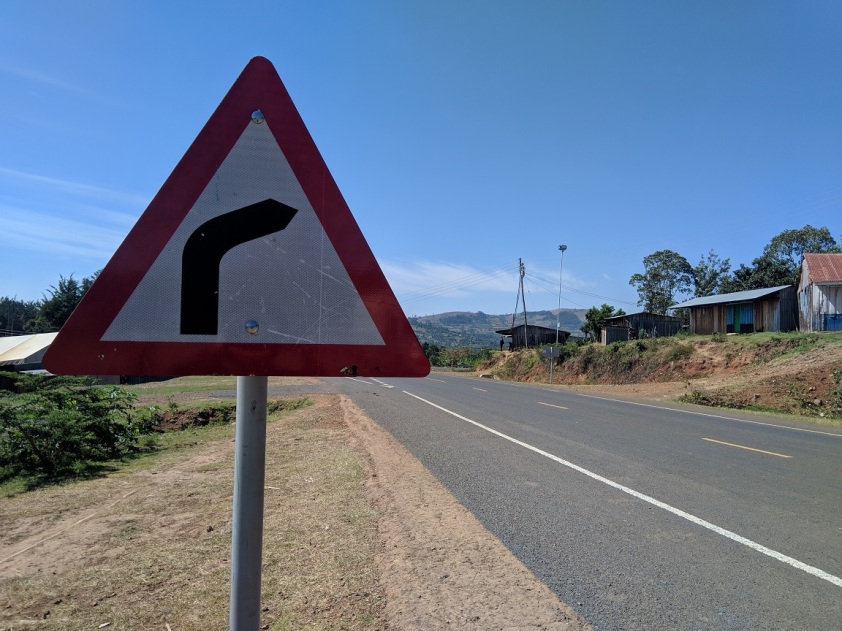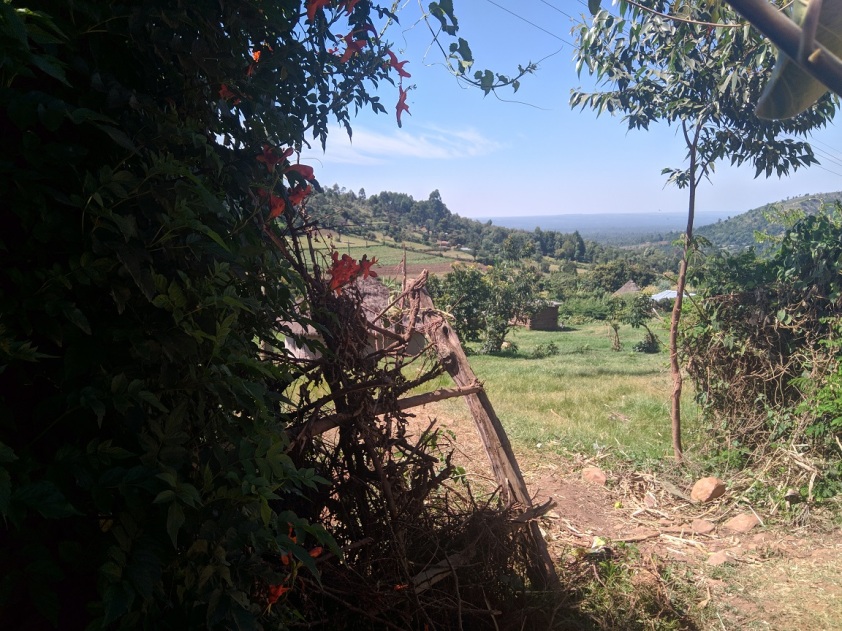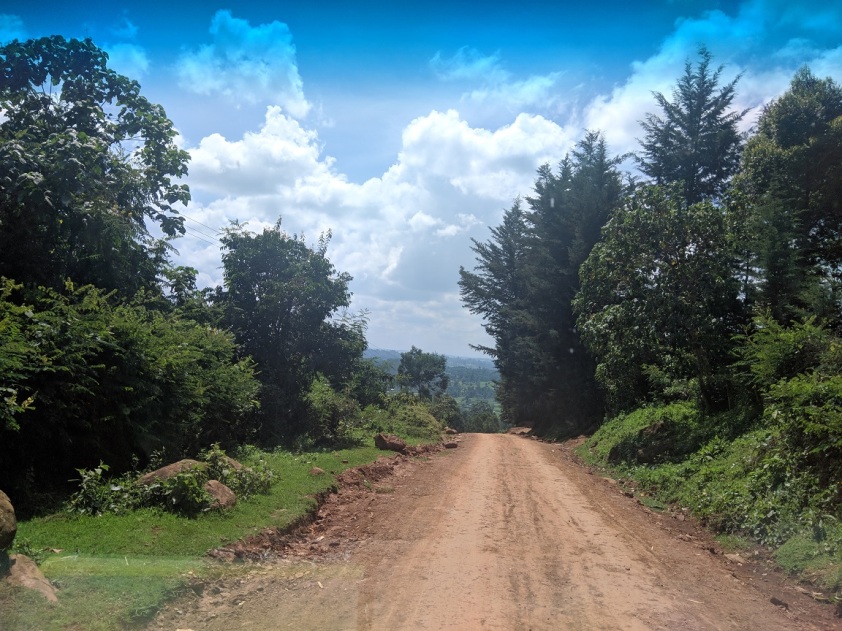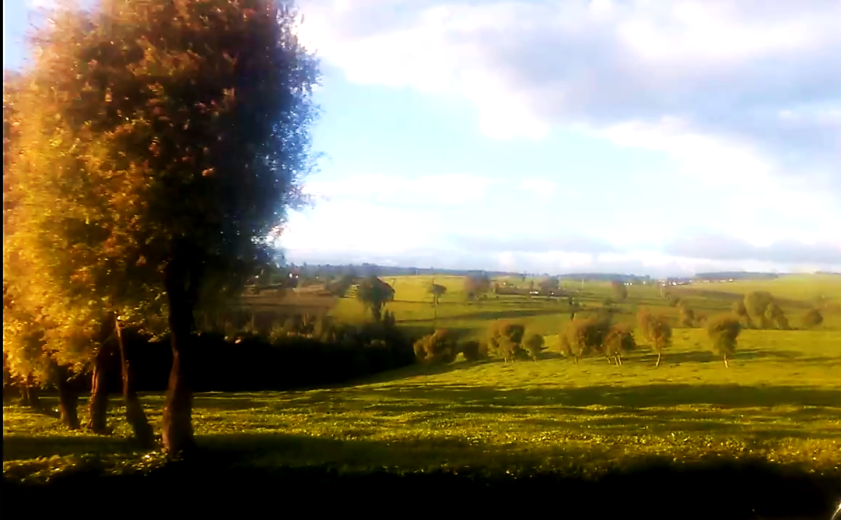The road to Olchobosei is a long one, even if that’s been said about many other towns. We’ve been on the road for nearly two hours now but I’ve been dropping in and out of a pleasant nap so it doesn’t really feel like it.
The road to Olchobosei snakes and twists in remarkable ways through hill country so that while at one point we seem dead-set on an imprudent collision course with an imposing hill, the next moment we are straddling harmlessly along its side.
The road to Olchobosei is guarded by an old man. If you should pass by that spot where Ndanai-Gogor road coils back on itself, a fair paces beyond Tendewet Bus Stage and Kaplomboi School, if you should be lucky to pass it at that time of day when the sun obnoxiously hits you right in the side of the face you will no doubt find him on his royal makeshift bench. He notices me taking photos of his dominion and calls out to me, insisting I go over and shake his hand. His ears have been pierced and then subjected to years of unforgiving stretching exercises as part of the tradition of the people around. The lobes swing freely in a very very noticeable way. His cane hangs to his side, it’s design a very unique one. Something else about the man excites me though and repulses equally, a rebellious air about him perhaps best captured by the familiar smell of a joint, which grows stronger as I approach. My eyes instinctively trace the origin of the offending smell and I notice it dumped on the ground near a patch of grass, no doubt to be revisited once our conversation was done. He extends his arm in greeting and asks me where am from. I tell him: ‘Mombasa’. He tells me he lived there once, for six months as part of a protective detail for a famous politician. telling me afterwards he moved to Nairobi to work at a bottling company. Then he breaks the narrative by asking me to buy him breakfast. I try to resolve this break by thinking of it as my mandatory passage fee and drop him a twenty. He smiles and wishes me good luck on my journey.
The road to Olchobosei is fraught with reckless daredevils. A woman carrying a pail of milk offhandedly strolls across the road as we speed down on it. My colleague bangs his hands on the car horn like the Luhya once upon a time banged the Sikuti and swerves well in time to avoid her. As we pass her she smiles glumly at our astonishment.
The road to Olchobosei gets less of a road as we creep closer and closer and we have to roll up our windows to stop the dust fleeing into the car.
By mid-day, the road to Olchobosei whips around one hundred and eighty degrees in space, turns into the road home, and we get to do it all over again…in reverse.
***************************************
Video below starts a bit loud (heed all ye headphone wielders)…
..
